Joe Biden presidential bid: It’s time for the US Vice-President to decide if he will run for the White House
Out of America: Mr Biden will decide this weekend if he will join the race – and become a serious challenger to Hillary Clinton

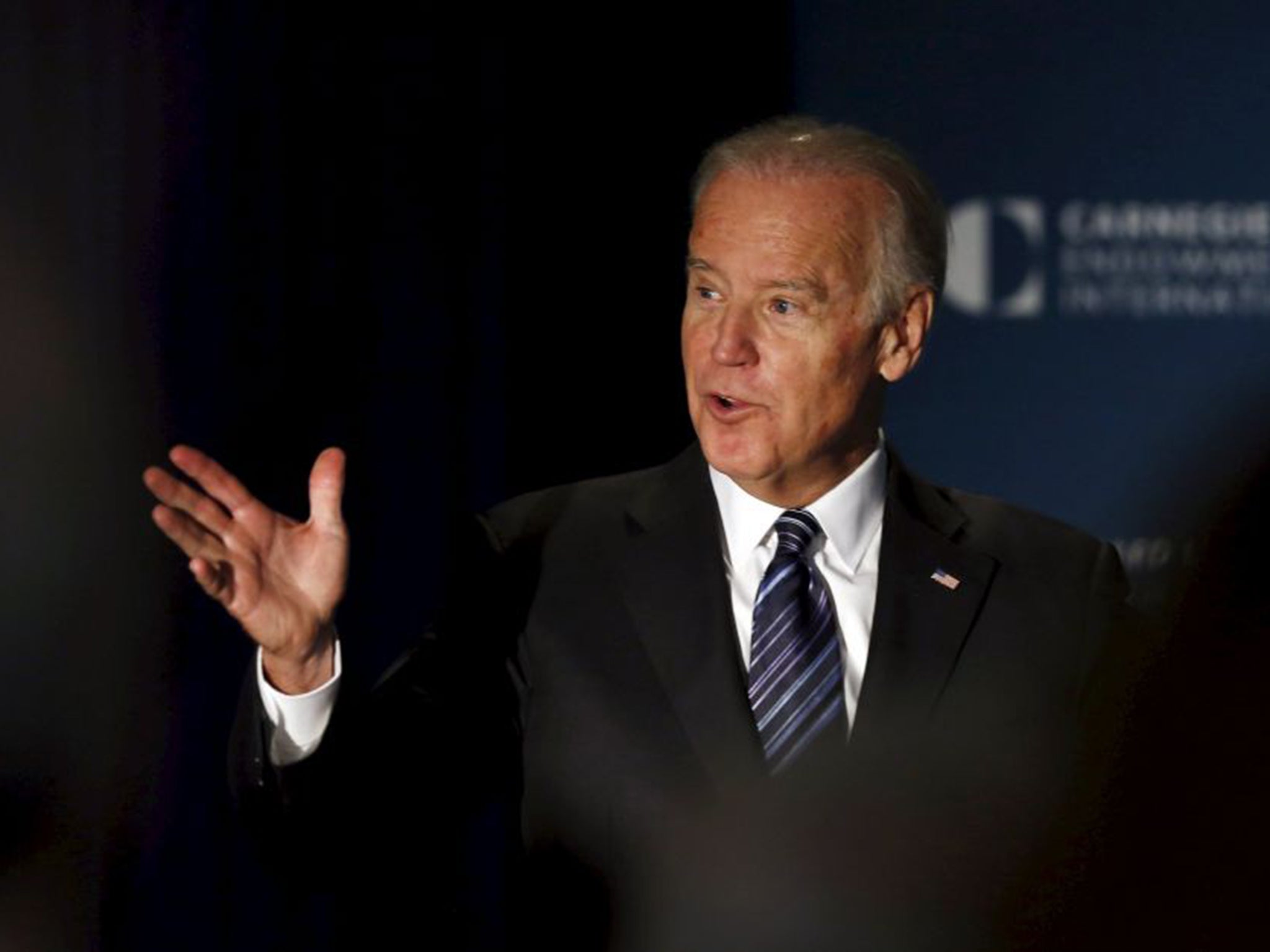
This is a big weekend for family get-togethers and the future of American politics. Paul Ryan, running mate of Mitt Romney in 2012, has gone home to Wisconsin to discuss with his family whether he should take arguably the least desirable position in Washington, that of Republican Speaker of the House of Representatives.
To be sure, if he says yes, he’ll be third in line for the presidency. But the price is constant, debilitating warfare with a conservative lunatic fringe, warfare that drove the long-suffering John Boehner from the Speakership and has just forced Boehner’s preferred successor to withdraw his candidacy.
Meanwhile, Vice-President Joe Biden is back in Delaware to consult with his family before a final decision on whether to launch his third bid for the White House and challenge Hillary Clinton for the Democratic nomination.
The Ryan dilemma may have the stuff of high drama, of a reluctant Cincinnatus implored by colleagues to save his Congressional party from ruin. But even if he says thanks but no thanks, the Republicans will find someone and the House will muddle on. Biden’s long dither, by contrast, has become part of the background music of national politics. Yet his decision matters more than Ryan’s. Not only is it the last missing piece of the puzzle in this fascinating pre-primary season but it could yet deny Clinton her place in history as America’s first female president.
First, though, there’s the small matter of the opening Democratic debate in Las Vegas on Tuesday. Whatever he decides, Biden will miss it. But the occasion could be make or break for three minor candidates. Despite their intriguing CVs, neither Martin O’Malley, the youthful and energetic ex-Governor of Maryland, nor a couple of Republican-turned-Democrats – Jim Webb, the quirky loner who once represented Virginia in the Senate, and Lincoln Chafee, the former Governor of Rhode Island who left his party in despair at its rightward lurch – has made the slightest impression on the race so far. Failure to do so on Tuesday will surely mean the exit of one or more of the trio.

And the debate could prove a banana skin for Clinton, too. Back in October 2007, when she was the early, massive favourite for the nomination, her rivals leapt on her during a debate after she fumbled her answer about illegal immigrants having driving licences. It didn’t seem a big deal at the time. In retrospect, however, it was the moment when the aura of inevitability surrounding Clinton vanished, and the Obama march to the Oval Office began in earnest. Could the same happen again?
It’s unlikely. Bernie Sanders, the self-proclaimed socialist senator from Vermont who has emerged as her main rival, is no Barack Obama. Yes, he’s drawing huge crowds, and has captivated the white liberal segment of the Democratic vote with his platform of a single-payer healthcare system, a crackdown on Wall Street and free university tuition for all.
He has also virtually caught up in fundraising, thanks to a torrent of small donations, in contrast to the wealthy donors who underpin the Clinton campaign. Doubtless, he’ll do very well in Iowa and New Hampshire, where the primary season kicks off. The truth is, however, that out-and-out populists do not win elections in the US.
Contrary to much myth, many Americans are aware of what goes on in the rest of the world, and know that Sanders’ views are standard centre-left by European standards, not a reprint of the Communist Manifesto. And they’re popular enough here for the mainstream candidate Clinton to incorporate elements of them into her campaign, in words at least.
And what of her flip-flopping – as in her newly tough language about Wall Street and her sudden opposition to a Pacific trade pact she supported when Secretary of State? She’s anything but the first candidate to do so, given the inbuilt bias of the primary system to the extremes. Old pro that she is, she’s left herself enough wiggle room should she need to change her mind come the presidential election campaign.
After small and overwhelmingly white Iowa and New Hampshire, the battle moves to much friendlier terrain for Clinton: larger states with powerful party and union machines, major black and minority voting blocs, expensive media markets and far more convention delegates. If it remains a straight fight between her and Sanders, and the email row or some other past or present scandal doesn’t fatally weaken her, realistically there’s only one winner.
Except, of course, if Biden joins the fray. He and Clinton are basically from the same political cloth, of the same generation, both moderates and pillars of the Democratic establishment who have been around Washington for decades. Inevitably, they fish in the same pool for votes. For Biden supporters, polls show, she is their second choice, and vice versa for Clinton voters. In the event her campaign were to founder, Biden, not Sanders, would be the beneficiary.
They are cut from the same political cloth and inevitably fish in the same pool for votes
This is a big reason why she trails Sanders in New Hampshire, where Biden is scoring around 15 per cent even though he isn’t a candidate, and why she’s only narrowly ahead in Iowa. If Biden does enter the race, more trouble could loom. By most conventional measures, Clinton would still be streets ahead – in terms of money, organisation and endorsements. But the Vice-President is a much-loved figure, with an engaging (if sometimes foot-in-mouth) spontaneity that she lacks.
Biden, moreover, could portray himself as the natural heir to Obama, the inheritor of the President’s popularity among black and minority voters – both constituencies where Sanders has made scant impression but which are the cornerstones of any Clinton coalition.
All these factors will be weighed up by Biden this weekend. When the white or black smoke will issue from the vice-presidential residence is anyone’s guess. But I’ll make a couple, none the less. Biden will become a candidate, and Ryan’s the next Speaker.

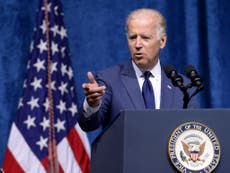
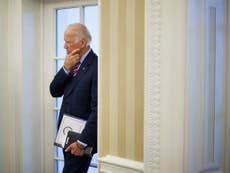
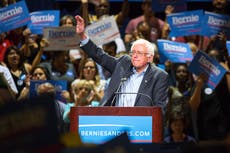
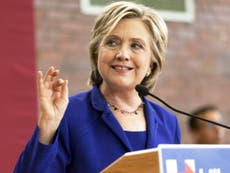
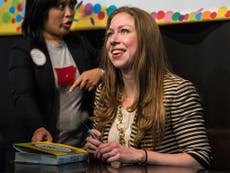
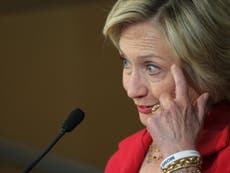
Join our commenting forum
Join thought-provoking conversations, follow other Independent readers and see their replies